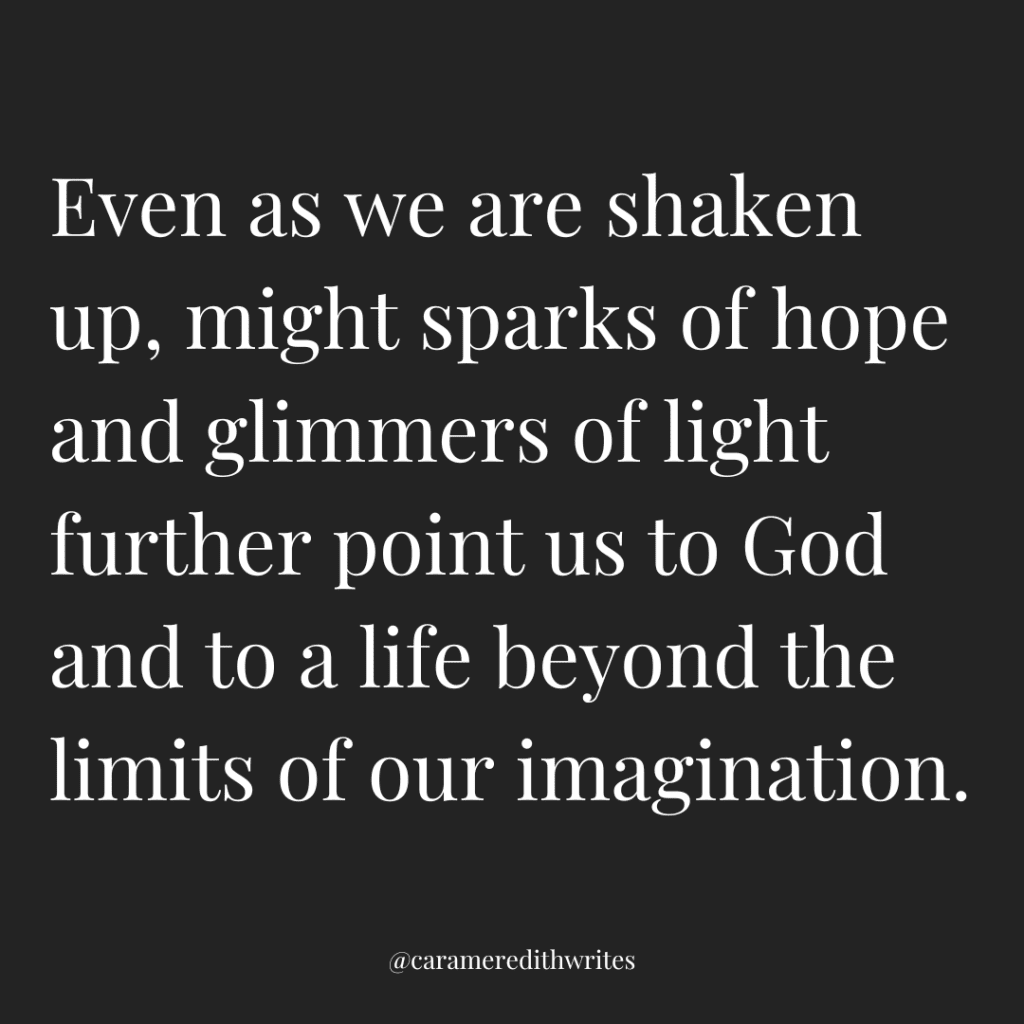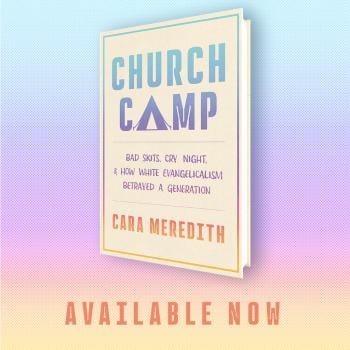Here’s a sermon for you from November 6, 2022, preached at St. Paul’s Episcopal in San Rafael. Enjoy!

On Friday, my husband James and I sat across the table with a new friend and our real estate agent. It was a time of remembering: remembering back to a little over a year and a half ago when our landlord informed us that she was going to sell the house. We needed to move. It was my birthday, that much I remember, and with that news, it didn’t end up being the best day on record.
My husband and I felt turned upside-down, shaken up by the unknowns. Where would we live? How could we afford to stay in the San Francisco Bay area, either as renters or as buyers? What would another transition to do us and to our children? At that point, the world was well over a year into the pandemic, but with it also came racial and civil unrest, vitriolic political division, and a massive, collective grief. I already felt like I was at the end of my rope; I didn’t feel like I could handle anything else.
Moving, however, was inevitable. We needed to find a place stat.
The short of Friday’s hour and a half long conversation was this: although we felt completely upended by the news, eventually, sparks of hope and glimmers of light started to filter in through the cracks. A gift here. An encouragement there. No matter what, moving always comes with its own set of complications, and those couple of months were no exception. In the end, we found what we affectionately call our miracle house – a house we somehow bought and get to call home today.
I tell you this story because it’s good for me, and for all of us, to remember.
But I also tell you this story because when we feel shaken up by grief, sometimes it helps to remember those times of stillness, when sparks of hope and glimmers of light still wriggled their way in.
And it’s this idea of being shaken that I keep thinking about, perhaps because the word “shaken” was found in two of today’s readings (and as I’ll soon point out, inadvertently featured in a third).
In the Old Testament reading, Haggai the prophet delivers a message from the Lord to the governor of Judah, the high priest, and to a “remnant of the people.” He directs them to take courage (three times, in fact) and to not fear because at some point, “in a little while, I will shake the heavens and the earth and the sea and the dry land; and I will shake all the nations so that the treasure of all nations shall come, and (then) I will fill this house with splendor.” This is what God says to God’s people: God’s gonna shake things up, no doubt about it.
This shaking up, of course, is something I’d rather not deal with, not if I have any choice in the matter. I’d rather not be forced to move. I’d rather not have to deal with an ugly family situation. I’d rather not have my own beliefs and viewpoints be challenged. Can we just live lives of comfort and coziness and avoid any shaking up altogether, please?
But this is not God’s message to us, not then and not now. Shaking up is bound to happen: In a little while, I will shake things up, God effectively says through the prophet Haggai. Shaking up, one might say, is inevitable. Shaking up is part of being human, whether we like it or not.
And shaking up is what some of us are in the middle of right now.
To this, I say, I see you and I hear you. I know what it means to be in that place, when everything feels turned upside-down and there are more questions than answers. To this, I hope we, as in us, this community, this church, can be your people; I hope we can come alongside you with meals and prayers. I hope that we can hold your tears when you feel shaken up by grief and overwhelmed by the unknown.
And to this, I also think of Paul’s letter to the church at Thessalonica. Our third reading starts with these words: “As to the coming of our Lord Jesus Christ and our being gathered together to him, we beg you, brothers and sisters, not to be quickly shaken in mind or alarmed, either by spirit or by word or by letter, as though from us, to the effect that the day of the Lord is already here” (2 Thessalonians 2:1-2). Paul writes to the Thessalonians, not to rid them of feeling a particular way, but to remind them that God is still present in this place – God is still the one “who loved us and through grace gave us eternal comfort and good hope” (2 Thessalonians 2:16).
God is still here, with you, with us. The story’s not over yet.
After all, the story we cling to ends with the greatest shake-up of all: a little “8-pound, 6-ounce, newborn infant Jesus, [who] don’t even know a word yet, just a little infant and so cuddly, but still omnipotent,” as Ricky Bobby so eloquently said in Talledega Nights.
The season of Advent starts in just three weeks. During this time, we are invited to sit in the waiting, to be okay with not-knowing, and to poke at the tinder of expectation – while we await the arrival of Emmanuel, God with us.
Until this happens, though, we lean into an extended season of Pentecost. We get to know Jesus as a grown-up, as someone who always seems to be in the business of shaking things up.
In Luke 20, Jesus is confronted by some Sadducees. The Sadducees are religious men; they do not believe in the resurrection, but they wholeheartedly believe in the Law of Moses. This scene is not to throw shade at the Sadducees, but the encounter is one of many contentious encounters. It acts as an “an elaborate set-up meant to force Jesus into a compromised answer,” as one theologian put it, for “the absurdity of the question [they ask] is part of the point.”
Jesus, of course, does not directly answer the question he is asked, for their question is not the point. Instead, the point is bigger and the point altogether shakes things up: we are children of the resurrection and “God is not the God of the dead, but of the living.” The answer, my friends, is bigger than you think; the answer is bigger than you could have ever asked or imagined. The answer lies in a single sentence spoken over you (from the aforementioned theologian): “May the God of the living continually draw our attention to this life beyond the limits of our imagination.”
May this be our prayer – as we gather around dining room tables and tell tales of remembering, as we greet one another with peace and share coffee after the service, as we go out into the world and interact with our neighbors.
Even as we are shaken up, might sparks of hope and glimmers of light further point us to God and to a life beyond the limits of our imagination.
Amen.













